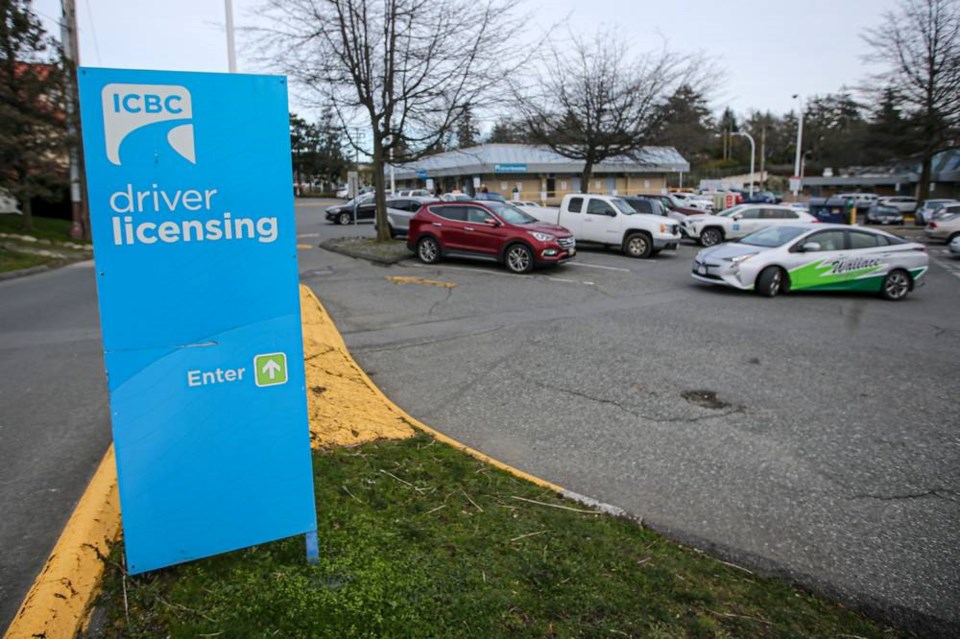B.C. drivers will get a one-time COVID rebate averaging $190 from the Insurance Corp. of B.C. as work-from-home habits drive down collision claims for the public auto-insurer.
Drivers should expect to get their rebate via a one-time cheque in March, which will be paid out of $600 million saved by ICBC due to a major decrease in crashes and insurance claims.
At a news conference Tuesday, Premier John Horgan called the rebate the “largest single give-back to policy holders in Canada through COVID-19.”
About 2.86 million people will receive a rebate as long as they had an active policy from April 1 to Sept. 30, 2020. The amount customers receive will be based on a portion of what they paid for coverage during that period. Customers with multiple vehicles will receive a rebate for each insurance policy. However, drivers with short-term, storage or distance-based policies will not get the rebate as ICBC said their premiums already reflect lower usage.
ICBC was under mounting pressure to pass on its savings to customers as motorists in other jurisdictions across Canada have already received a rebate.
Asked why the rebates took so long, Minister of Public Safety Mike Farnworth said ICBC needed to ensure it was on sound financial footing before passing the savings onto drivers.
“Millions of ICBC policy holders will be receiving a COVID-19 rebate but not at the expense of ICBC’s financial stability or any future savings the new enhanced care model will bring starting this May and for years to come,” Farnworth said.
B.C. will switch to a no-fault insurance model on May 1, a change that is expected to save drivers about 20 per cent or an average of $400 a year.
Responding to criticism of a massive backlog of 300,000 people still waiting for their COVID-19 relief benefit, which the government promised would be in bank accounts by December, Horgan said he doesn’t expect ICBC customers to face the same delays because the insurance provider has up-to-date data on policy holders.
ICBC CEO Nicolas Jimenez said drivers changed their habits during the unprecedented pandemic which helped the insurer’s bottom line.
“And the vast majority of [drivers] will now share in that success, through one of the largest COVID-19 rebates by any insurer in Canada,” he said.
Farnworth said depending on the insurance policy, 80 per cent of customers will receive a rebate of between $50 and $300.
As people continue to work from home and socialize less to stop the spread of the virus, fewer cars are on the road, particularly at rush hour, leading to fewer collisions. ICBC saw a 46 per cent drop in collision claims between mid-March and early May, a reduction in 7,200 claims per week, according to a financial update in May.
During a second quarter financial update last week, Jimenez said the auto-insurer was sitting on $410 million in net income, a major turnaround from the $2 billion loss between the start of 2018 and the end of 2019.
Kris Sims, director of the B.C. branch of the Canadian Taxpayers Federation, welcomed the rebate but criticized the government for making drivers wait months for the announcement.
Drivers outside B.C. received auto insurance rebate cheques, some as high as $300, last spring and summer. Sims said that’s largely because private insurance companies in Ontario and Alberta, for example, know drivers can shop around for the best deal. Even Manitoba which, like B.C., offers auto insurance through a government-owned corporation, gave drivers their first rebate cheque in May and the second last month.



